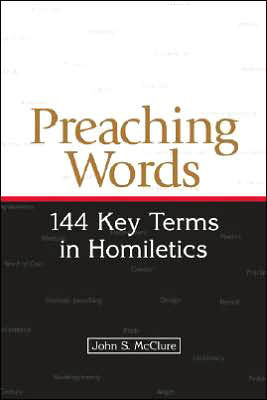
|
Posted January 25, 2007
Book: Preaching to the Converted: On Sundays and Feast Days Throughout the Year Author: Richard Leonard, S.J. Paulist Press. New York. 2006. Pp. 389 An Excerpt from the Jacket:
What preachers need is a good story to tell and a dynamic way of presenting it, and this book has it all! It contains brief story-based reflections of no more than 750 words on the readings for each Sunday and feast day in the Catholic lectionary. These reflectionsare concise, engaging, intelligent, and adaptable. Preaching to the Converted will help preachers and homilists, communities who have Sunday celebrations in the absence of a priest, teachers who use the readings in classrooms, people who prepare reflection sessions on the Sunday Gospel, individuals who want a personal and prayerful preparation for the day’s liturgy, and even those who need a written reflection on the Gospel for their parish, school, or CCD bulletin or newsletter. An Excerpt from the Book: Fourth Sunday in Ordinary Time Jermiah 1:4-5, 17-19 1 Corinthians 12:31 — 13:13 Luke 4:21-30 At the end of today’s Gospel we hear how Jesus’ hometown crowd was so outraged by his words that they wanted to throw him off a cliff. How things have changed! These days many young adults seek the thrill of bungee jumping where they tie a rope around their ankles and willingly hurl themselves from any available precipice! It seems that some young people enjoy the challenge of facing down their fears, trusting the generally good track record of those who have done it before them, and publicly showing their courage, even to the brink of death. Those of us not courageous or stupid enough to attempt a bungee jump have to concede that to do it, for whatever reason, is heroic stuff. Heroic stuff is at the heart of today’s readings. Even though the crowd hated what they heard, Jesus preached boldly to his own people. Jeremiah was similarly courageous in his teaching, in the face of enormous persecution from his people. And Paul knows the only reason one can endure hardships and rejection and even be seen as stupid in the eyes of the world is for the sake of love. The word love has to be one of the most misused words in our language. We say we love our house, holiday, car, and even ice cream. But using love in this way we scarcely come close to what Christian love is all about. St. Paul teaches today that love is not primarily about warm, fuzzy feelings and swooning violins. Paul knew that Christian love is an intensely practical business. There is no point in any of us saying we love anyone unless our actions follow the profession we make. Indeed as St. John was to sharply say in his letter in the New Testament, “If you say you love God and hate your neighbor, you are a liar.” We can spout the right words about loving God and each other all we like, but if we do not show it in how we live, then we are noisy gongs and clanging cymbals. There is no way around it. Christian love always and everywhere involves sacrifice. So, how can we love like this? Why should we love like this? We can love sacrificially because other people have loved us in the same way. When anyone has been gentle, kind, and patient with us, when they did not insist on their own way, were not irritable, resentful, or enjoy our downfall, we were on the receiving end of love. They showed us how to do it. That’s sacrificial love and that is what Christian love is all about. The good news today is that we also have legions of companions who have been down this road before us. From Jeremiah to Jesus to Paul to the martyrs and saints and to our own families, we know that it is possible to face down our fears, trust the track record of those who have done it before us, publicly show our courage, even to the brink of death and leap into the future with only three ropes tied to our ankles. On one is written, “faith.” On the second is written “hope” and on the third and strongest rope is written “love.” Let’s pray, then, for the grace to be stupid in the eyes of the world and heroic in the courage it takes to sacrificially love others, and to be loved by them, even to the point of death. Table of Contents: Entire Liturgical Years |
|
